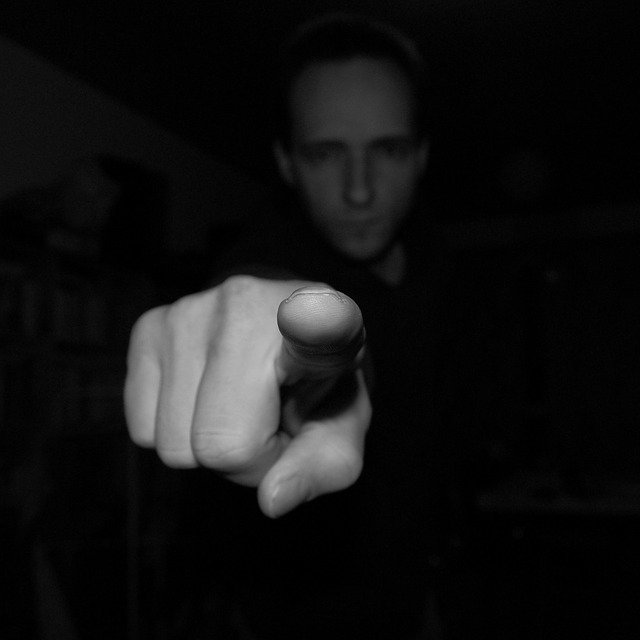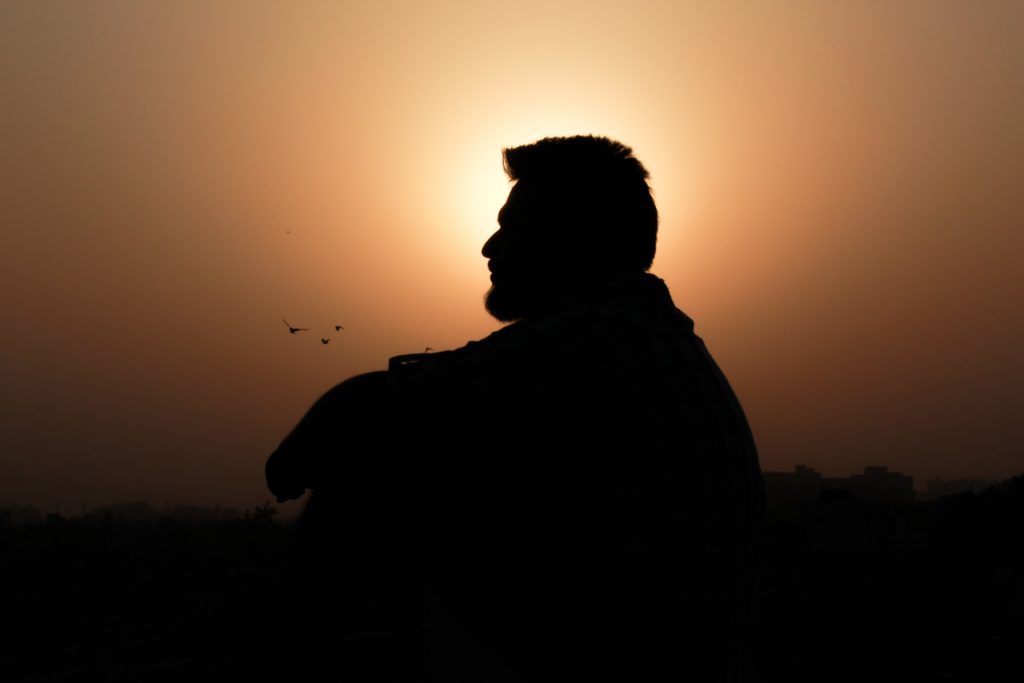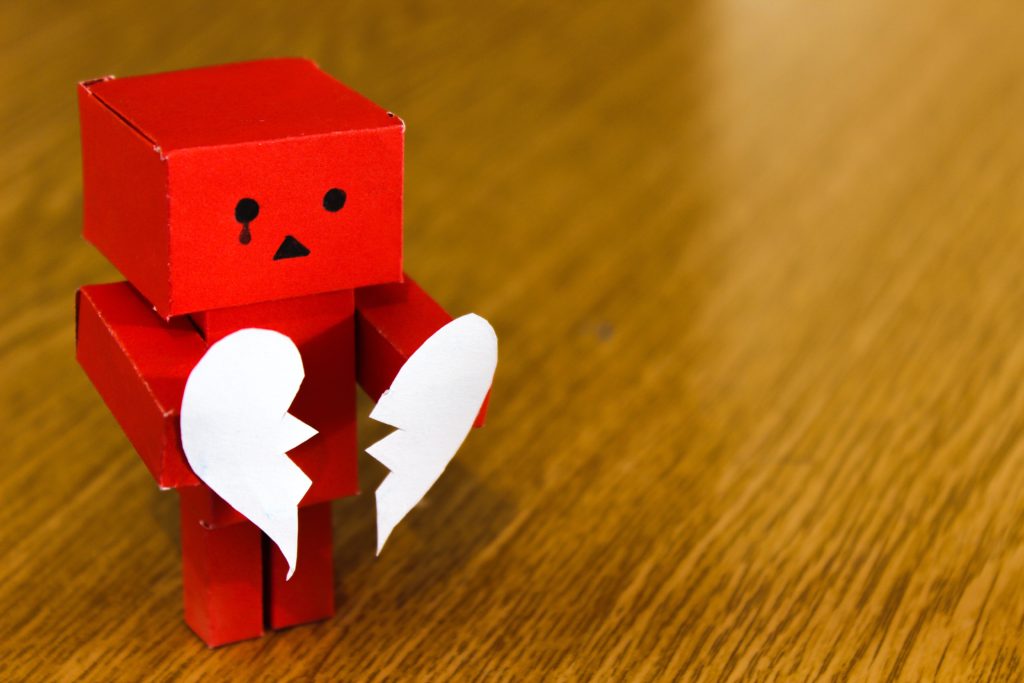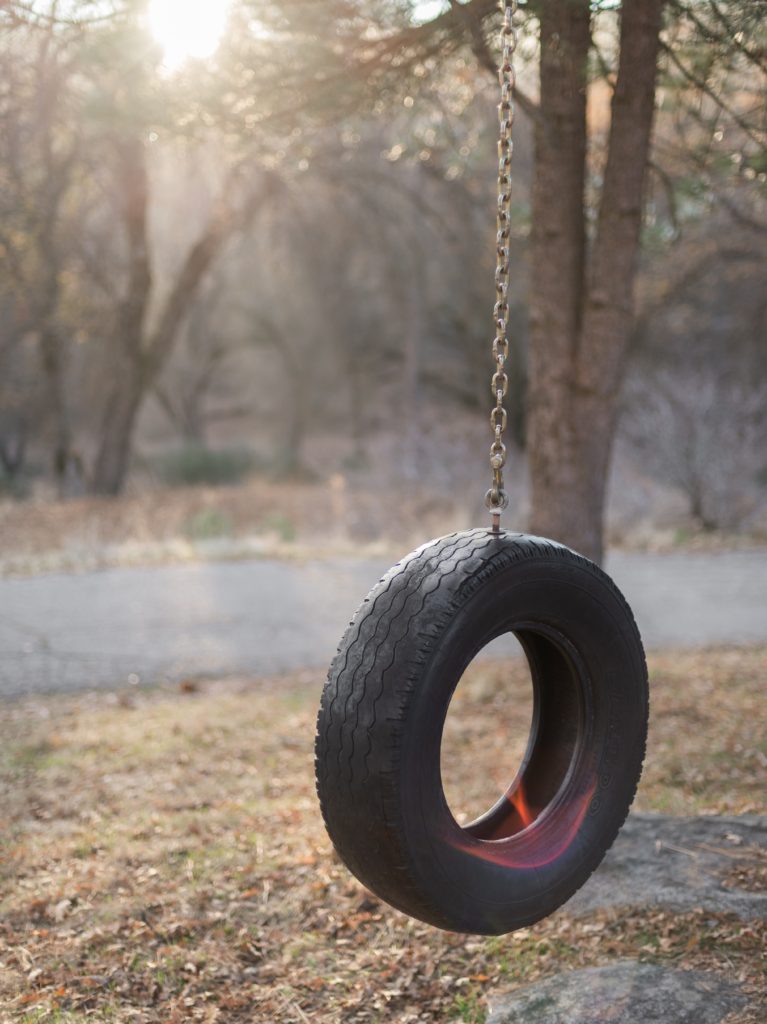
As humans, we are wired with a longing for fairness and justice. An expectation of reparation and equitable consequences. Revenge even. Unfortunately for us humans, life is often unfair, unjust, unaccountable, and inequitable.
We find comfort when we can clearly assign blame for things gone wrong. When we can unequivocally point the finger, knowing the situation was someone else’s fault.
But sometimes things just happen. For no apparent reason. With no one to blame.
The grieving mind has a hard time reconciling the reality that a crime has been committed against it, but there is no perpetrator. IT MUST BE SOMEONE’S FAULT. If we look outward and there is no one to blame, our only other option is to turn the guilt inward. IT MUST BE MY FAULT.

A broken spirit can only bear so much. It already buckles under the burden of the loss. Throw on the weight of fault and it will collapse. So we bargain as a way to cope with the volume of the pain.
Bargaining is the part where we mentally negotiate with God. Like a desparate child, we plead with Him, promising certain thoughts, attitudes, or behaviors if He could just…if He would only. It’s truly the most profound reflection of the depth of our grief. I WILL DO ANYTHING IF YOU JUST MAKE IT STOP.
Bargaining does not come from a place of logic or reason. Deep down, we know life does not offer second chances. There is no cosmic rewind button. No mulligans. Our bargaining comes from a primordial place of self-preservation. Our body’s innate knowing that it has been asked to shoulder more than it can bear.
We bargain bedside in hospitals, sacrificing future happiness for a miracle now. In the middle of the night, on tear-stained pillows, offering to exchange pieces of ourselves for the wholeness of another. Trading all we treasure for just a little more time, a little less pain, one more chance.
When the loss is final, our bargaining morphs into more complicated negotations of the mind, manifesting itself in the shoulda-coulda-wouldas. Our ceaseless rumination over every excruciating detail. Our merciless reliving of the situation. Our ruthless examination of what we did wrong, what we could have done differently, what we would do if we could do it again.
In bargaining, we desperately seek closure, but it is really only the vicious reopening of the wound.

Six weeks after Turner died, I experienced a glimmer of hope: the feeling I may actually survive the most painful moment of my life. But days later, my 7-year-old son suffered a life-threatening accident. And I was drowning again. Losing Turner felt like someone had beat me beyond recognition and left me for dead. Parker’s injury felt like I miraculously survived the attack, and as soon as I regained consciousness, someone took a baseball bat to my concussed head.
11 years later, this trauma still plays on repeat in my head. I see Parker spinning on the tire swing. I hear his laughter change from uninhibited to uncertain. I feel that twinge, that motherly knowing, that gut instinct telling me to pause, to stop, that my armful of miscellany can wait.
It only takes a moment. For a kid to get dizzy and lose balance and fall. It only takes a moment to break a bone, to fracture a human skull. It only takes a moment for the dura, the Hard Mother, to be punctured and release a floodgate of CSF onto the root of an old oak tree erupting from the earth.
It only takes a moment for everything to change, to shatter. It takes a lifetime to put it all back together again.
If only. If I had just.

I’ve been bargaining for 11 years. It continually takes me back to the scene of the crime, but never forward. Nothing I have offered to trade so far has been enough for God. And there is no one to blame but myself.
Are you trapped in the cycle of bargaining? Are you a prisoner of your own guilt and fault and blame? Has life unfolded in ways you never expected?
Maybe you didn’t get a chance to say goodbye. Maybe your last words to the one you loved still fill you with regret. Maybe your relationship was marked by a lifetime of things unsaid.
Life will not give you a second chance. And neither will death. You must be your own second chance.

Our brains believe what they see. Whether it’s “real” or not. Which is why you awaken from a nightmare, drenched in sweat, heart racing, panicked breathing. The sights, sensations, situations are real to our brains and therefore real to our bodies.
Sometimes we need to train our brains to see something better. A final conversation that says everything we never got the chance to. A moment where we made a different choice. A visualization of what it would be like to fully, finally let go.
A few months after Turner died, I had a recurring dream that he and I were standing at the edge of the ocean. I could see Jesus far out in the distance, on the opposite shore, and I knew He was waiting to take my boy Home. Turner and I would swim out together, gliding through the water toward the other shore, with synchronous strokes, at peace together in the water.
In my dreams, we never made it to the other side. I knew that when we did, I would have to say goodbye. I would have to let go. And I never felt ready to stop swimming with him.
So instead I dream with my eyes open. I imagine that swim with my son: the warmth of the sun on our skin, the cool of the water around us, the patience of our Jesus waiting for both of us with open arms. I picture that moment of goodbye, of letting go, of the peace that comes from leaving him for now.

It only takes a moment for everything to change. For something to end. For a new thing to begin.
Most moments are beyond our control. They happen to us, for us, in spite of us. We can’t change them or trade them or bargain them away. But we can own them and live them fully and create better versions of them in our dreams.
Waking or sleeping, He’s waiting for you. On the other shore. In each and every moment.

I love this, it’s so effing real. Humans are so strong and so frail at the same time <3
So true! Such a powerful paradox
I had something insightful to comment when I read the draft of this, but I should’ve written it down because I don’t remember what it was anymore, LOL.
All I know is that this perfectly describes our last few weeks as J.R. was in the hospital and diagnosed type 1 diabetic. 99% of the time in my life, when things seemed like a bad dream, they were. Our good luck finally ran out, and in this situation, there was quite literally no one to logically blame.
Through it all I’m seeing the immense amount of good that will come from it. I already feel closer and more empathetic towards my son and family and think it’ll make a huge positive impact on our relationship in the long run.
I never fully experienced how positive things can come from such negative news until now. No matter how much we would’ve traded to take it away in the beginning, I’m not sure it’s even a bad thing anymore.
Yes that is such a life-changing experience for all of you! I admire that you can already see the good in it. You are the best dad.